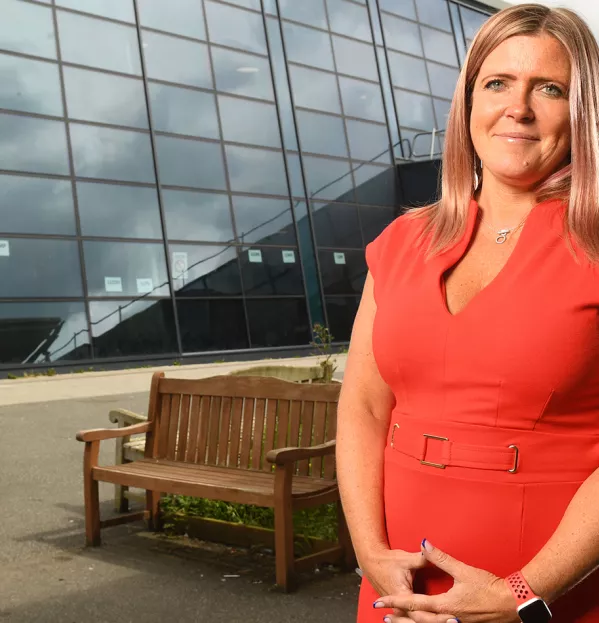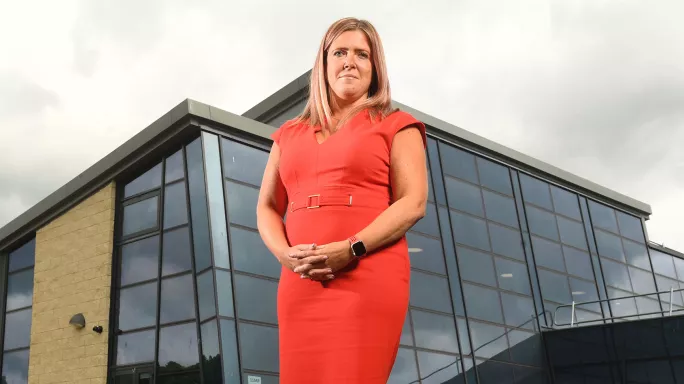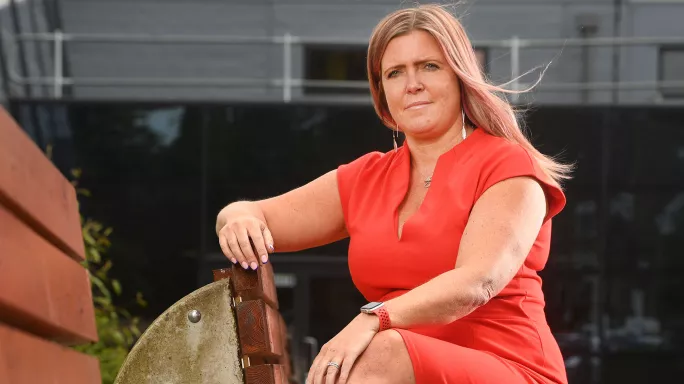- Home
- Leadership
- Strategy
- 10 questions with...Carol Dewhurst
10 questions with...Carol Dewhurst

Carol Dewhurst is CEO of Bradford Diocesan Academies Trust (BDAT), a multi-academy trust formed of 19 schools in and around the city in West Yorkshire.
Prior to joining a trust, she worked for the Department for Education, which she says gave her valuable insight into the realities of school leadership. This led her to the realisation that she could have a bigger impact working on education’s frontline.
Answering Tes’ 10 questions, she talks about her own school days and the impact they have had on her thinking as a trust CEO; why funding and special needs support must improve; the importance of a good work-life balance; and why the collegiate nature of the education system is one of its great strengths.
1. Who was your most memorable teacher and why?
I attended a small Church of England primary and then an all-girls’ secondary, and I wasn’t a perfect student - I tended to get distracted easily. But I was supported by some fabulous teachers, who took the time to get to know me and got me engaged in schoolwork and learning.
I had an absolutely brilliant history teacher called Mrs Nicholson, who tailored how she taught to make sure she got the best out of me. She had a lot of patience and was really kind, but I also knew where I stood with her. I learned some important lessons about how I want be as an adult because of her.
2. What were the best and worst things about school?
The best things were the extra experiences I got to take part in. I remember going on a trip to battlefields in France and Belgium and being inspired and overwhelmed by the scale of it - it really brought history to life. And the range of sports activities you got to try was great, too.
More Tes’ 10 questions:
- Moira Marder, CEO of the Ted Wragg Trust
- Lorrayne Hughes, chief executive of Cumbria Education Trust
- Jude Lowson, the first female head at The King’s School in Canterbury
I think that’s what makes memories and this is why at BDAT I’m really passionate about student experience and student voice.
In terms of the worst, I really enjoyed school so I don’t think there was a worst part!
3. Why do you work in education?
I previously worked for the Department for Education but I made the move into schools in 2014.
Because my role gave me insight into the challenges and pressures schools were facing, I felt a role in frontline leadership would help me to make more of a difference around helping schools to improve, making sure children had a great time at school, and supporting staff, too.
It’s been an incredibly rewarding move. I get to see students pretty much every day, I get to watch some incredible arts and sports and cultural experiences. I get to see happy faces on results day - it’s been really positive and fulfilling, and I’m really glad I made the move.
4. What are you proudest of in your career? And what do you regret?
I don’t really regret anything, but I’ve probably made quite a lot of mistakes along the way and there are things I would do differently. For example, over the past 10 years the way I work has changed and I’ve had to adapt to not going in quite so direct in some situations.
What I’m most proud of is the family of schools we’ve created in Bradford. I can say, hand on heart, that every one of my schools is providing a really great service to the children and communities they serve.

I’m also quite proud of the fact that I’m still standing some weeks, and still smiling. And I think that’s down to the fact that I’ve managed to retain a healthy work-life balance. That’s something I try to model for staff because I think it’s really important.
5. Who would be your colleagues in your perfect school staffroom?
My perfect colleague would be someone who does what they say they’re going to do, steps in and supports their colleagues and their team when they need to, and who puts the child at the centre of why they’re doing what they’re doing.
I strongly believe that everyone should have that focus and I’ve got an amazing team who do just that. They are probably one of the reasons I’m still doing this job 10 years later - I’ve never stayed in a job this long before.
6. What are the best and worst aspects of our school system?
I think the school system is a little bit broken at the moment. It needs some pretty massive change.
There simply isn’t enough funding to provide students with the level of additional teaching support they need and it’s disappointing so many school leaders are having to make cuts, which will damage further the quality of education that children potentially receive, particularly our most vulnerable students.
I also think there are issues with the accountability system - it’s out of date. I don’t think it’s kept up with the challenging community context that schools face at the moment.
I think what is working well is we’re seeing a real desire from government to listen, and I think there is a collective voice coming from trust and system leaders to pull together to try to influence change and speak out about what’s needed.
And there is also a really strong professional collegiality in the system now. We talk together as trusts, we talk together as schools; there’s sharing of good practice so we don’t recreate the wheel, and that helps save time and budgets, too.
7. Who in education has influenced you the most?
There are a lot of people I look up to in the education system and who I’ve learned lessons from over the years.
I am in touch with other trust leaders day in, day out, and their professional and personal generosity and their support and kindness have really influenced and inspired me over the past few years, particularly during Covid, when you needed someone at the end of the phone to talk to when things get tough.
8. If you became education secretary what would you do?
We need to ensure that schools are properly funded.
I’m not talking about going back to the days of plenty; I’m talking about schools simply being funded to ensure that the basic costs are covered, that we can afford to employ good quality teachers and keep them in the sector; we can afford to maintain safe and secure school buildings and so on.

I would also look at what support we are giving our most vulnerable students. We know mental ill-health and children presenting with special needs have absolutely exploded and we need to make sure that there is appropriate provision - either through developing more alternative appropriate provision or funding mainstream schools to provide the provision within the mainstream classroom.
9. What will our schools be like in 30 years’ time?
I think schools are going to continue to be the universal frontline service. There will be an expectation on schools that they continue to provide mental health and wellbeing support for students; that they provide outreach and home support.
That’s OK but only if we receive the support, recognition and funding to to do that, rather than it being an add-on we should absorb.
10. What are the most important lessons you’ve learned?
To expect the unexpected!
I love this job but no two days are the same and I’ve had to learn not to beat myself up when I never get to cross things off my to-do list because we’re dealing with children, we’re dealing with people, and things change. I’ve also learned the importance of choosing my battles wisely because you can’t fight on every front.
Overall, I think experience over the years has taught me that things happen and you have to prioritise and you have to realise that education is fast moving and you’ve just got to take it as it comes,
Carol Dewhurst was talking to Dan Worth
You need a Tes subscription to read this article
Subscribe now to read this article and get other subscriber-only content:
- Unlimited access to all Tes magazine content
- Exclusive subscriber-only stories
- Award-winning email newsletters
Already a subscriber? Log in
You need a subscription to read this article
Subscribe now to read this article and get other subscriber-only content, including:
- Unlimited access to all Tes magazine content
- Exclusive subscriber-only stories
- Award-winning email newsletters
topics in this article



